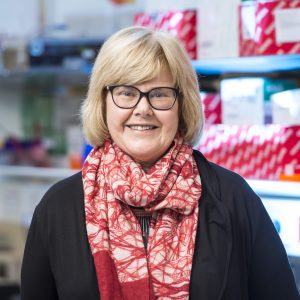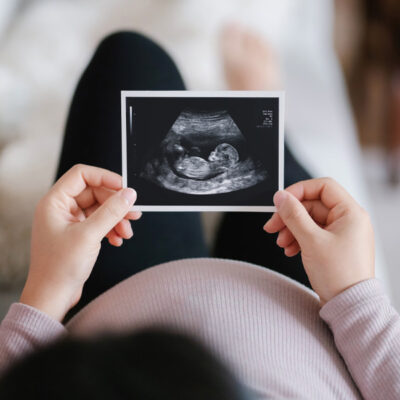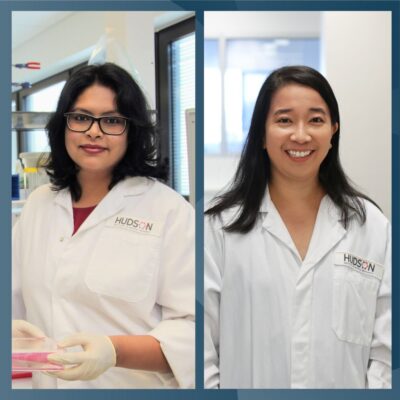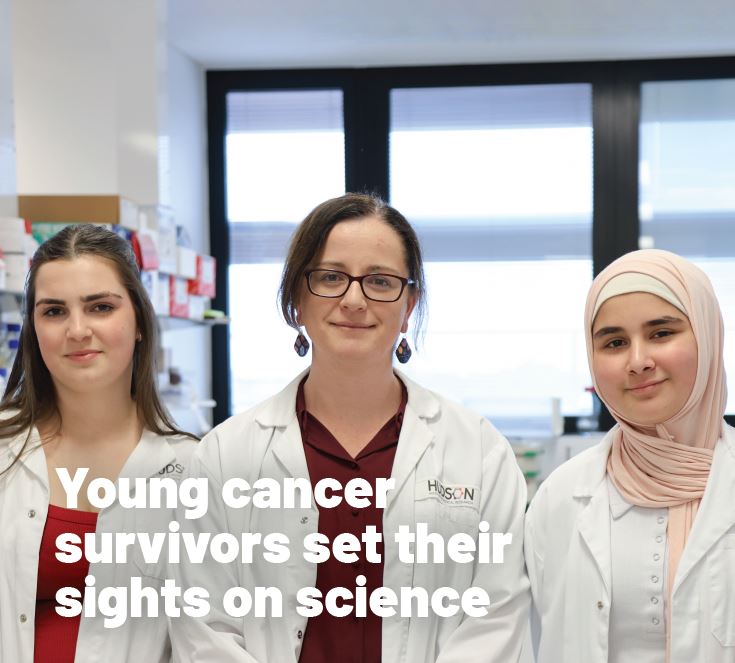Professor Lois Salamonsen elected as Australian Academy of Science Fellow
By Hudson Institute communications
Women’s reproductive health expert Professor Lois Salamonsen has been elected to the Australian Academy of Science, for her outstanding contributions to science.

Prof Salamonsen is one of 21 of Australia’s best scientists to be elected to the Academy in 2017, in a rare and esteemed honour.
“I feel enormously honoured and humbled by this selection. It is certainly the pinnacle of my career, and I thank my generous mentors who put my name forward for this,” Prof Salamonsen said.
Prof Salamonsen joins experts in kidney research, nanotechnology, geophysics, mobile telecommunications, astronomy and embryology in this year’s list of inductees. The group was elected by their Academy peers, following a rigorous evaluation process.
Prof Salamonsen’s career spans more than 30 years, with her research focused on human endometrial biology.
She has published more than 260 peer-reviewed publications in the fields of endometrial remodelling, implantation and endometriosis, and has >12,000 citations.
“I work particularly on the endometrium, which is the lining of the uterus. The endometrium is a truly remarkable tissue – it completely rebuilds itself 350-400 times in a woman’s life,” Prof Salamonsen said.
Her discoveries include determining the mechanisms underpinning menstruation, and the embryo –maternal cross-talk critical for embryo implantation. Her findings have important implications for infertility, abnormal uterine bleeding, endometriosis and development of new non-hormonal contraceptives for women.
“What happens during the early reproductive processes can affect the health of that individual for the rest of their life. This is therefore a key to a healthy population,” she said.
Professor Salamonsen was first inspired to become a scientist as a child – an interest later encouraged by her mentors.
“I was excited by science from a very early age. When I was a child, I collected bugs and read books about the universe,” Prof Salamonsen said.
“When I first came to Melbourne, I worked in the laboratory of Professor Henry Burger, renowned endocrinologist. It was through him that I became inspired by the complexity of reproduction. From then on, that was what I wanted to do.
“I have been strongly mentored also by my PhD supervisor and now colleague, Professor Jock Findlay, who along with Henry Burger has strongly supported me throughout my career.”
Prof Salamonsen says she is inspired by the diversity of nature, and by her scientific colleagues.
“When we make a discovery, it opens up a whole wealth of other directions that we need to follow. My colleagues and students share my enthusiasm for science,” she said.
Academy of Science President, Professor Andrew Holmes, congratulated all of the new Fellows for making significant and lasting impacts in their scientific disciplines.
Professor Salamonsen will be formally inducted into the Academy tonight (Monday, 22 May) at the Shine Dome in Canberra.
About Hudson Institute
Hudson Institute’ s research programs deliver in three areas of medical need – inflammation, cancer, women’s and newborn health. More
Hudson News
Get the inside view on discoveries and patient stories
“Thank you Hudson Institute researchers. Your work brings such hope to all women with ovarian cancer knowing that potentially women in the future won't have to go through what we have!”



